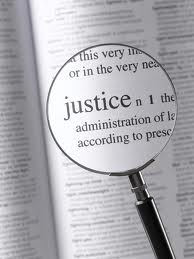 Release of goods without bill of lading
Release of goods without bill of lading
Facts
In November 2008 “A” (the Shipper) concluded a sales contract with a European buyer and nominated «B» (the Forwarder) to handle the carriage of the goods. As the Chinese agent of «B» (the Successive Forwarder), “C” (the Forwarder) dealt with related consignment procedures.
When the batch of goods arrived safely at the destination, the European buyer failed to make payment against the documentation and «B» (the Successive Forwarder) delivered the goods to the buyer without the original bill of lading. Consequently, «A” (the Shipper) took legal action against «B» (the Successive Forwarder) and «C” (the Forwarder) for total loss.
«B» (the Successive Forwarder) and «C” (the Forwarder) was in a difficult position. As the carrier which had delivered the goods without the original bill of lading, «C” (the Forwarder) was not entitled to enjoy the limitation of liability and was likely to be found responsible for “A” (the Shipper) total loss.
«C” (the Forwarder) argued that, as the vendor, «A” (the Shipper) should bear partial responsibility with regard to the delivery of goods without the original bill of lading.
The goods supplied by «A” (the Shipper) were subject to certain quality problems, which left the buyer unable to resell them in good time and recover the purchase cost. As a result, the buyer failed to pay «A” (the Shipper) on time.
Once the goods arrived at the destination, the buyer did not take delivery against the bill of lading for a long period. The goods were deemed to have failed to clear Customs and were ready to be auctioned by the European authorities. When informed by the buyer that «A” (the Shipper) had agreed to release the goods before collecting the money, in order to prevent further loss, «B» (the Successive Forwarder) released the goods to the buyer in good faith. Nevertheless, “A” (the Shipper), which had remained unpaid for a long time, paid no attention to the whereabouts of the goods and did not contact «B» (the Successive Forwarder) and «C” (the Forwarder) on this subject. Consequently, «B» (the Successive Forwarder) lost the opportunity to claim for recovery from the European consignee. Thus, «B» (the Successive Forwarder) obtained no benefit, but had to bear a substantial liability.
As the freight forwarder, «C” (the Forwarder) was not responsible for problems occurring during transportation once it had fulfilled its obligation of cargo space booking. It was thus difficult for «A” (the Shipper) to attribute liability to «C” (the Forwarder) for the release of the goods without the original bill of lading.
As the carrier, «B» (the Successive Forwarder) was likely to have to bear responsibility for the delivery of goods without the original bill of lading. However, as the company was registered in Europe, it would be difficult to enforce an Asian court’s judgment in Europe, even if «A” (the Shipper) ultimately won the lawsuit. Moreover, owing to the global financial crisis and the sustained economic downturn in Europe, from 2009 the buyer’s business went into decline. With the company about to enter bankruptcy proceedings, there was little chance for «A” (the Shipper) to recover a loss by suing the European buyer, and the latter hoped to resolve the dispute with «A” (the Shipper) through «B» (the Successive Forwarder) and “C” (the Forwarder).
A consensus was reached and both parties signed a settlement agreement to close the file. The carrier paid the counterparty 68% of the amount claimed.
Comment
Although the carrier had erred in delivering the goods without an original bill of lading, it managed to avoid the full consequences and a payment of 100% compensation.
Where a dispute arises due to a delivery of goods without the original bill of lading, the parties should consider whether consultations and negotiation can be used to resolve the dispute, rather than proceeding to litigation. Since such an approach is less likely to damage a good business relationship between parties, they may still be able to cooperate in future. However, a carrier that commits an error must have a correct and objective understanding of its responsibilities and obligations.
Takis Kalogerakos
Marine Underwriter
September 29 2010


